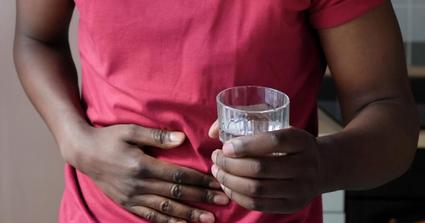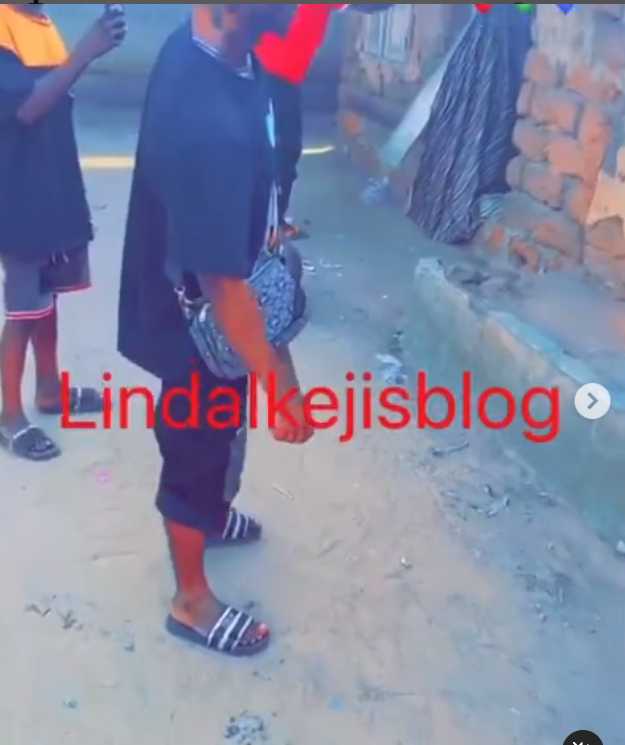Through an open doorway in her home, Ilja Abbattista couldn’t escape the horrific sight of a blindfolded woman being raped.
A queue of men had lined up in the hallway to take their ‘turn’ in committing the atrocity.
Ilja was frozen in terror. If she said anything, her and her family’s lives would be put at risk.
From the ages of 18 to 20, she routinely witnessed rape, physical abuse and even suspected murder as she was trafficked across Europe.
By Kirsten Robertson
It is only now, 30 years on from her miraculously escape, that she is able to tell her story for the first time.
Born to a Dutch mother and an English father, Ilja spent her time living between the UK and the Netherlands.
Her parents were separated and her upbringing was difficult. Put into care in 1987 at the age of 14, she still doesn’t entirely understand the reason why.
As a result of the uncertainty, she grew up feeling unloved and alone.
Ilja’s favourite hobby as a child was blowing bubbles outside grandmother’s house in The Netherlands
Ilja remained in the care system until she was 17 when she was provided with a flat. But she struggled to afford bills or food and, soon, debts began to build.
Desperate for a way out, when one of her friends introduced Ilja to some men who could help with her debt – if she married one of them so he could obtain a visa.
However, the men took the teenager’s passport and other paperwork – and the ‘marriage’ never materialised.
Ilja found out the men were traffickers known for exploiting women after she told her friend about the ‘marriage’ and, things turned dark.
‘When the men discovered I had spoken out about them, they claimed I owed them a “debt”,’ she remembers. ‘To repay it I could either have them cut off one of my fingers, have them kill one of my family members, or I could “work” for them for a week.’
Read Also:
Israel-Hamas War Live: Gaza Hospital Blast that Killed 500 Sparks Protests Across the Middle East
Why You and Millions of Other Women Are Awake at 3:29am
Terrified and desperate, Ilja agreed to the final option. However, the work didn’t last just one week. It lasted two and a half hellish years, spanning across Germany, Belgium and the Netherlands.
Ilja at a beach in The Netherlands whilst on holiday with her dad – before she was later put into care
The ‘work’ Ilja was forced to do involved men routinely sexually exploiting her.
Traffickers seized the teenager’s rented flat from her and made her live in a squalid environment with other women in her ‘group’. Any money Ilja earned, the men immediately took it.
She was ferried between seedy venues and dingy sex clubs and forced to repeatedly have sex against her will. At points, she worked up to 23 hours a day in the windows of Amsterdam’s red-light district.
Mentally and physically exhausted, the teenager would occasionally fall asleep on the job and be beaten up by traffickers as punishment.
At one point elsewhere, Ilja was nearly killed after a man she lived with became angry. He dragged her across the room before launching a brutal attack.
She only survived thanks to his two dogs – a Doberman and a small mutt – who jumped between them both.
Depressed upset young woman feeling hurt sad stressed troubled with unwanted pregnancy, regret mistake abortion, having headache or drug addiction, suffer from grief dramatic bad problem concept
Since managing to escape in October 1993, there’s one question Ilja – and others who have been trafficked – have been left weary at answering when sharing details of their horrific ideal: ‘Why didn’t you just leave?’
For the hundreds of thousands of women across the globe who have been forced to do things against their will, not to mention those impacted by abuse every day in the UK, it’s never that simple.
Manipulation, control over financial assets, threats against family and brute force are all tactics used. It’s also been suggested that Stockholm Syndrome – when victims feel some sort of loyalty to their captors – could be a factor.
‘Traffickers are charming to begin with but then that charm becomes manipulation. I was made to believe that if I did escape they would simply follow me,’ explains Ilja.
More Trends:
Nigerian Lady Rolls On The Floor At Airport After Crossing UK Border (Video)
Tinubu Moves To Block FBI, CIA, U.S. Agencies From Releasing Files – Gazette
‘They had my passport and I felt my life was in their hands. These people evade police quite easily, they’re unfortunately incredibly clever and deceiving.’
Throughout the time she was trafficked, Ilja often saw things she will never be able to forget. Other women were raped and seriously attacked by the traffickers in front of her, especially if they tried to escape.
Holland. Amsterdam. Red light district. Tourists for a walk.
Ilja was forced to work in Amsterdam’s Red Light District (Picture: Shutterstock/Anna Belkina Spb)
Such brutality left Ilja too petrified to even think about trying to get away.
‘At one point, there was a queue of men in the hallway,’ she remembers. ‘They were waiting to rape a woman who was blindfolded and handcuffed. The door was wide open and we could only watch in horror.’
A few days later, police came to the door. Ilja thinks the woman had reported the gang rape which she had been subjected to.
Ilja was taken into their station for questioning and felt relieved and hoped she’d be able to explain what happened and be freed from the torment of her captivity.
But as she walked down the police station’s corridor, her heart sank. Through a glass window in a different interview room she saw that one of her traffickers had followed her.
He fixed her with a gaze so severe that Ilja froze and was unable to tell officers the truth about the gang-rape she had witnessed.
Ilja Abbattista, 50, is a successful businesswoman based in the South West of England, with an array of awards to her name. She is happily married with two grown-up children and has her first grandchild on the way. However, Ilja is also a survivor. For 2.5 years, from ages 18 to 20, she was trafficked across Europe and forced into modern slavery and sexual exploitation. It is only now, 30 years on from when she escaped, that she is speaking out and telling her story for the first time to help other survivors who don?t have that voice. ?My father was English and mother Dutch, and so I spent my childhood living between the UK and the Netherlands?, said Ilja, ?However following a series of traumatic childhood experiences and difficult family relationships, at 13-years-old I went into care in the Netherlands. I remained in the care system until I was 17-years-old.? When Ilja reached 17 and left care she was provided with a flat, but was given no further help and had no support network around. She struggled for money and her debts began to build
Ilja is sharing her story in a bid to give a voice to other human trafficking survivors (Picture: Causeway)
‘I was terrified that I’d be punished in the same way that she was,’ she admits. ‘I know it sounds like a really cowardly form of self survival. But I didn’t feel I had a choice.’
Ilja recalls another incident, which saw a woman in the group mysteriously vanish.
She said: ‘She never came back and I was told by my traffickers that they had murdered her.’
She suspects her death was murder but, without any concrete evidence, the police investigation fell apart.
Ilja’s own escape finally came on a rainy day in Belgium in October 1993 – three decades ago this year.
‘I had discovered that a local doctor’s walk-in centre had a back door’ she recalls. ‘So I pretended I had a medical emergency and went there.’
Once inside, with her heart pounding in her chest, Ilja sprinted through the back door of a doctor’s surgery to freedom.
‘Out the back there was building work happening. I hid in silence under the scaffolding for hours, until a friend who was helping me escape arrived,’ she remembers. ‘I got straight into their car and they let me stay at their house for a few weeks. Then I was eventually taken to the ferry port, where I made my way to the UK.’
Ilja promised the person that helped her escape that she would never reveal who they were, and promise she still stands by today.
Upon arriving in the UK, Ilja also vowed to keep her former life a secret. She set up a beauty salon and started a family in Oxfordshire, in the South West of England – rarely letting on the harrowing ordeal she had been through.
Ilja added: ‘I didn’t want it to define me, and I was concerned people would judge and wouldn’t relate.
‘Although I was now living a safe life in the UK, I spent the following decades looking over my shoulder, worried the traffickers may find me.’
Despite her trauma, her entrepreneurial successes grew, and over the following years she founded a number of successful businesses – including restaurants, cookery schools, diet plans, packaging firms and interior design companies.
But she still rarely told anyone – especially men – about her turbulent and traumatic start to life.
After one abusive relationship with a controlling ex, Ilja was lucky enough to find love that lasted with her current partner.
Now happily married with two children aged 26 and 22, she waited until her children were older to tell them she had been trafficked, in order to give them a ‘trauma-free’ upbringing. Ilja’s family is growing now, with her first grandchild on the way.
Today – 30 years on from her escape – Ilja feels confident enough to tell her story.
She describes herself as a child without love, a teenager without purpose and a young adult without control. But now, she is a woman full of pride.
‘I have a fire in my belly’, the 50-year-old says.
‘This isn’t about me, I’m speaking out for all of those people who don’t have a voice. This includes lots of the women I worked with back then who didn’t get out and aren’t here today. If by me speaking out I can stop this happening to just one other person, that’s all it would need to be.
‘This is something that happened to me 30 years ago, but I don’t believe anything has really changed and more must be done to protect others from modern slavery and trafficking.’
Now, Ilja hopes to create a network where former victims of slavery can have a workplace to go to during their ‘transition’ period.
She also wants to change how we treat children in care, so they can have the awareness to ward off traffickers before they get lured into their system.
Ilja smiles aged 11, unaware of the horrors yet to befall her
‘I didn’t know if I was loved growing up. My parents had given me up, I was bullied,’ she says..’I thought there was something badly wrong with me.
‘Children just want to be loved, supported, hugged. Now, when I think of my own children and the idea of them navigating their lives alone, it’s heartbreaking.
‘A charming trafficker could show a child their first sign of support and sanctuary and they can be tricked into thinking that’s what love is.
‘As modern slavery victims, we are all vulnerable before being exploited. We need our children to be resilient and strong to stop this happening once and for all.’
Ilja is sharing her story as part of Causeway’s latest campaign, Survivors: Life Beyond Exploitation. Causeway are a national charity who support survivors of modern slavery and those caught in cycles of exploitation and crime.
Check out her short video:
To find out about the work of Causeway and Anti Slavery Week, please visit: www.wearecauseway.org.uk
What is Modern Slavery?
Modern Slavery is when one person is controlled and exploited by threats, violence, coercion, deception or abuse of power. It destroys lives, and often involves people being forced to work for free or extremely low wages.
Exploitation can take many forms, with some of the most common being: human trafficking, forced labour, debt bondage, child exploitation, criminal exploitation, sexual exploitation and forced marriage.
Modern slavery is all around us. Latest figures say that more than 50 million people around the world are currently trapped in exploitation, with more than 136,000 of those people in the UK, often hidden in plain sight.
What’s more, modern slavery is on the rise, global conflicts and oppression cause vulnerability and crisis, from which people easily fall prey to exploitation.
Survivors: Life Beyond Exploitation is Causeway’s latest awareness-raising and fundraising campaign. It aims to educate the public about modern slavery, human trafficking and exploitation – as well as challenging stereotypes, getting to the real people behind the statistics, and empowering survivors to show there is life beyond exploitation.
Causeway work to prevent, protect and support victims, and free them to live their lives. The charity provides services including, but not limited to: safe houses, one-to-one specialist support, holistic crisis support interventions and community connection groups.
Source: Metro.co.uk









